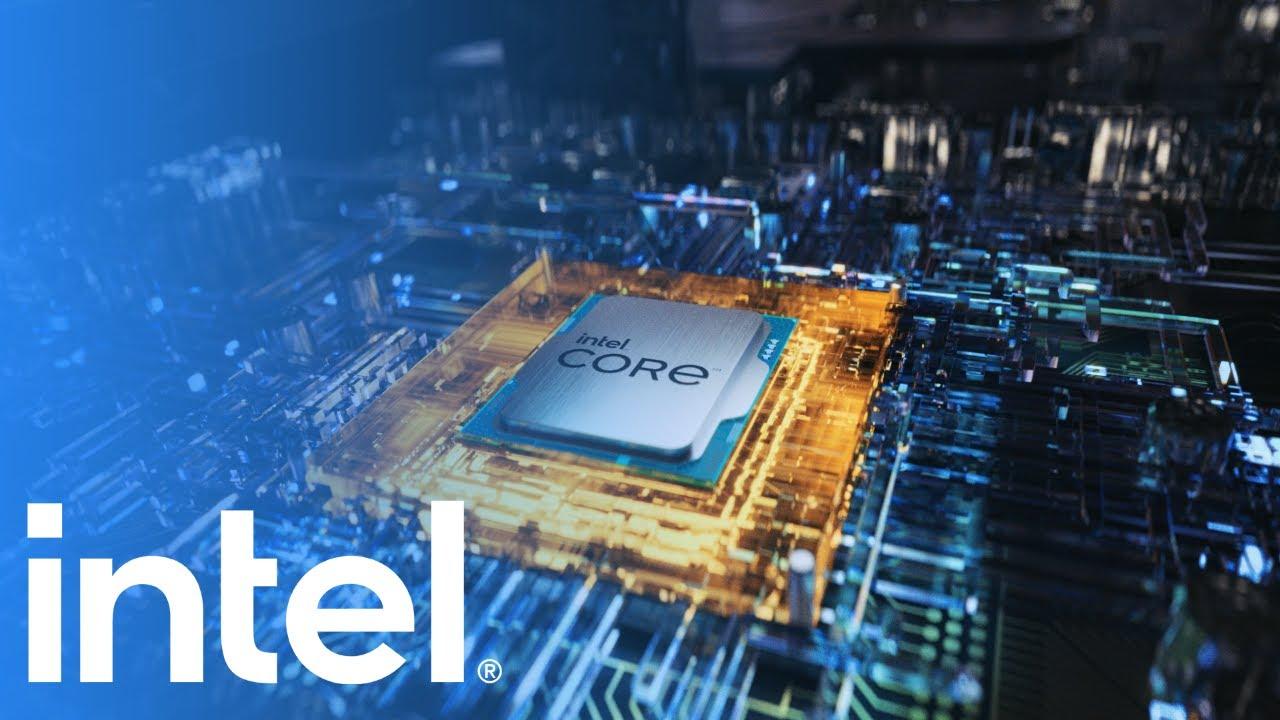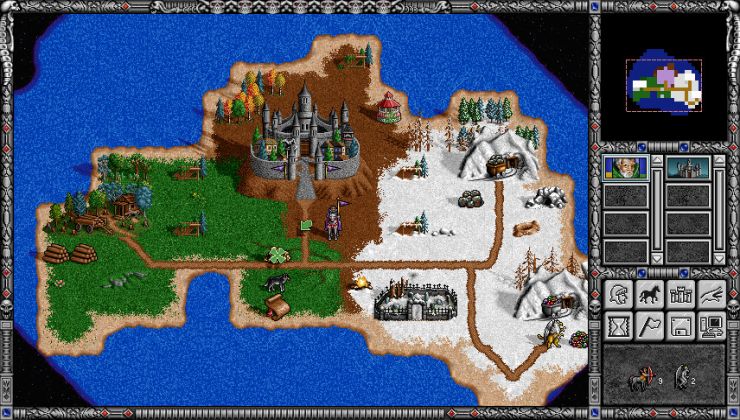Amongst a varied list of other announcements today, Intel formally introduced the 12th Gen Intel Core processors with the top end Intel Core i9-12900K that they claim is the "world's best gaming processor". Ready for what could be your next CPU? Code-named "Alder Lake", you won't have long to wait with November 4 being the date set for general availability and pre-orders in some places are live now.
"The performance hybrid architecture of 12th Gen Intel Core processors is an architectural shift made possible by close co-engineering of software and hardware that will deliver new levels of leadership performance for generations," said Gregory Bryant, Intel executive vice president and general manager of the Client Computing Group. "This begins with the arrival of our flagship Core i9-12900K – the world’s best gaming processor – and you will see even more incredible experiences as we ship the rest of the 12th Gen family and beyond."
The new processors also come along side the new Intel 600 Series Chipset. Key Features include:
- The first processors in the industry to offer DDR5 memory for up to 4800MT/s.
- The first processors in the industry to offer PCIe 5.0 (up to 16 lanes), which offers up to 2X I/O throughput over PCIe 4.0, with up to an additional four lanes of PCIe 4.0 support.
- Up to 30MB Intel® Smart Cache (L3) and 14MB L2 cache for increased memory capacity with reduced latency.
- Integrated high-speed wireless with Intel Killer Wi-Fi 6E, which combines industry-leading Wi-Fi 6E connectivity with powerful gaming network technology to minimize lag, latency, and packet loss.
- Discrete Thunderbolt 4 universal cable connectivity for external device expansion.
Check out their video on it below:

Direct Link
This is their first set based on their hybrid architecture, which features a mixture of their Performance-cores (P-cores) and Efficient-cores (E-cores). Intel say there will be about 60 different models, with the first set being announced as the unlocked "K" processor line. Pricing starts at $264 up to $589 for the unlocked desktop processors.
You can see some specifications below in our scrolling table:
| Processor Number | Processor Cores (P+E) | Processor Threads | Intel® Smart Cache (L3) | Total L2 Cache | Processor Turbo Frequency Intel® Turbo Boost Max Technology 3.0 Frequency (GHz) | Processor Turbo Frequency P-core Max Turbo Frequency (GHz) | Processor Turbo Frequency E-core Max Turbo Frequency (GHz) | Processor Base Frequency P-core Base Frequency (GHz) | Processor Base Frequency E-core Base Frequency (GHz) | Unlocked | Processor Graphics | Total CPU PCIe Lanes | Max Memory Speed | Memory Channels | Maximum Memory Capacity | Processor Base Power (W) | Maximum Turbo Power (W) |
|---|---|---|---|---|---|---|---|---|---|---|---|---|---|---|---|---|---|
| i9-12900K $589 |
16 (8P + 8E) |
24 | 30MB | 14MB |
Up to 5.2 |
Up to 5.1 |
Up to 3.9 |
3.2 | 2.4 | Yes |
Intel® UHD Graphics 770 |
20 |
DDR5 4800 MT/s DDR4 3200 MT/s |
2 | 128GB | 125 | 241 |
| i9-12900KF $564 |
16 (8P + 8E) |
24 | 30MB | 14MB |
Up to 5.2 |
Up to 5.1 |
Up to 3.9 |
3.2 | 2.4 | Yes | n/a | 20 |
DDR5 4800 MT/s DDR4 3200 MT/s |
2 | 128GB | 125 | 241 |
| i7-12700K $409 |
12 (8P + 4E) |
20 | 25MB | 12MB |
Up to 5.0 |
Up to 4.9 |
Up to 3.8 |
3.6 | 2.7 | Yes |
Intel® UHD Graphics 770 |
20 |
DDR5 4800 MT/s DDR4 3200 MT/s |
2 | 128GB | 125 | 190 |
| i7-12700KF $384 |
12 (8P + 4E) |
20 | 25MB | 12MB |
Up to 5.0 |
Up to 4.9 |
Up to 3.8 |
3.6 | 2.7 | Yes | n/a | 20 |
DDR5 4800 MT/s DDR4 3200 MT/s |
2 | 128GB | 125 | 190 |
| i5-12600K $289 |
10 (6P + 4E) |
16 | 20MB | 9.5MB | n/a |
Up to 4.9 |
Up to 3.6 |
3.7 | 2.8 | Yes |
Intel® UHD Graphics 770 |
20 |
DDR5 4800 MT/s DDR4 3200 MT/s |
2 | 128GB | 125 | 150 |
| i5-12600KF $264 |
10 (6P + 4E) |
16 | 20MB | 9.5MB | n/a |
Up to 4.9 |
Up to 3.6 |
3.7 | 2.8 | Yes | n/a | 20 |
DDR5 4800 MT/s DDR4 3200 MT/s |
2 | 128GB | 125 | 150 |
See the full announcement with links to more info.
Which one has the HT, the P one or the E one?
Making such mixed cores also will put more burden on OS schedulers to use them in some balanced ways.
Last edited by Shmerl on 27 Oct 2021 at 6:46 pm UTC
What's the pricing for this one?Sorry, missed that it was in the presentation but not the specs sheet. Added.
Are two processors glued in one package? One with HyperThreading and the other without it?
Which one has the HT, the P one or the E one?
P cores support HT
I'm really expecting to see benchs. Also, it will be cool to see how better is DDR5 vs DDR4 (my guess is that there will not be a big difference).
Didn't the 11th gen came out like earlier this year? intel range is getting harder and harder to follow.
Literally took the words out of my mouth.
Also.... I'm not normally one to criticize one's use of language, especially here considering how many people are not native English speakers (and I respect the heck out of your language abilities).
But, I am a native English speaker and I'd like to think I do ok at my language. I assume Gregory Bryant, Intel executive vice president and general manager of the Client Computing Group, is as well (or has a competent translation team).
Given that; I have absolutely no idea what anything he said actually means:
"The performance hybrid architecture of 12th Gen Intel Core processors is an architectural shift made possible by close co-engineering of software and hardware that will deliver new levels of leadership performance for generations,"
Glad to know my great grand children will see the new levels of leadership performance. I've always wanted high performing leadership.
"This begins with the arrival of our flagship Core i9-12900K – the world’s best gaming processor – and you will see even more incredible experiences as we ship the rest of the 12th Gen family and beyond."
What? See more incredible experiences as they ship? I mean, I like logistics, but unless that freight is coming on a venerable locomotive, I can't imagine seeing such an incredible experience.
Edit: fixing my terrible English, lol
Last edited by denyasis on 27 Oct 2021 at 11:40 pm UTC
"The performance hybrid architecture of 12th Gen Intel Core processors is an architectural shift made possible by close co-engineering of software and hardware that will deliver new levels of leadership performance for generations,"
Glad to know my great grand children will see the new levels of leadership performance. I've always wanted high performing leadership.
lol
I think by "performance hybrid architecture" he means those less and more powerful cores in the same processor.
And "close co-engineering of software and hardware" is a veiled way to say that the burden will fall on operating systems to make schedulers that will have to leverage those cores in some optimal way, otherwise your performance will suffer (that's the "software" part).
Basically, don't rush to buy it, until someone (Intel I assume?) will add such scheduler for Linux (if you are even considering it). In general Intel are good at doing it though so it should appear at some point.
Last edited by Shmerl on 28 Oct 2021 at 12:18 am UTC
Basically, don't rush to buy it, until someone (Intel I assume?) will add such scheduler for Linux (if you are even considering it). In general Intel are good at doing it though so it should appear at some point.
Linux has been doing this for years for big.LITTLE, asymmetric multiprocessing is nothing new for Linux.
Linux has been doing this for years for big.LITTLE, asymmetric multiprocessing is nothing new for Linux.
Then they can plug into it, but they can have their own specifics. It also can be related to different polices of power saving.
Last edited by Shmerl on 28 Oct 2021 at 4:24 am UTC
What's the pricing for this one? Would be interesting to see benchmarks, but I'm sticking to AMD. They so far decided not to use this cores disparity approach and rather focus on improving all cores as a whole.
Making such mixed cores also will put more burden on OS schedulers to use them in some balanced ways.
Isn't this one going to be a power hog to rival an AMD FX?
https://www.techpowerup.com/288337/final-intel-12th-gen-core-cpu-spec-and-pricing-leak-hours-before-official-reveal
I'm going back to AMD (for my CPU at least) next upgrade.
If I hear one of our "high performing leaders" in my work talk about "pivoting" one more time....
What's the pricing for this one? Would be interesting to see benchmarks, but I'm sticking to AMD. They so far decided not to use this cores disparity approach and rather focus on improving all cores as a whole.
Making such mixed cores also will put more burden on OS schedulers to use them in some balanced ways.
Oh, I'd love for AMD to come out with big.little cores too :)
Oh, I'd love for AMD to come out with big.little cores too :)
From what I've read, they aren't planning to follow Intel on this for now and rather would focus on optimizing all cores.
Last edited by prosoor on 28 Oct 2021 at 9:33 pm UTC












 An idiots guide to setting up Minecraft on Steam Deck / SteamOS with controller support
An idiots guide to setting up Minecraft on Steam Deck / SteamOS with controller support How to install extra software, apps and games on SteamOS and Steam Deck
How to install extra software, apps and games on SteamOS and Steam Deck
See more from me